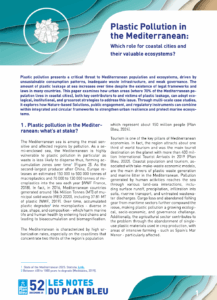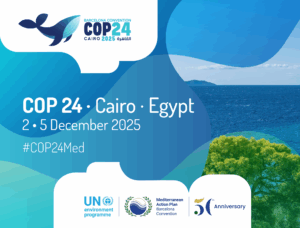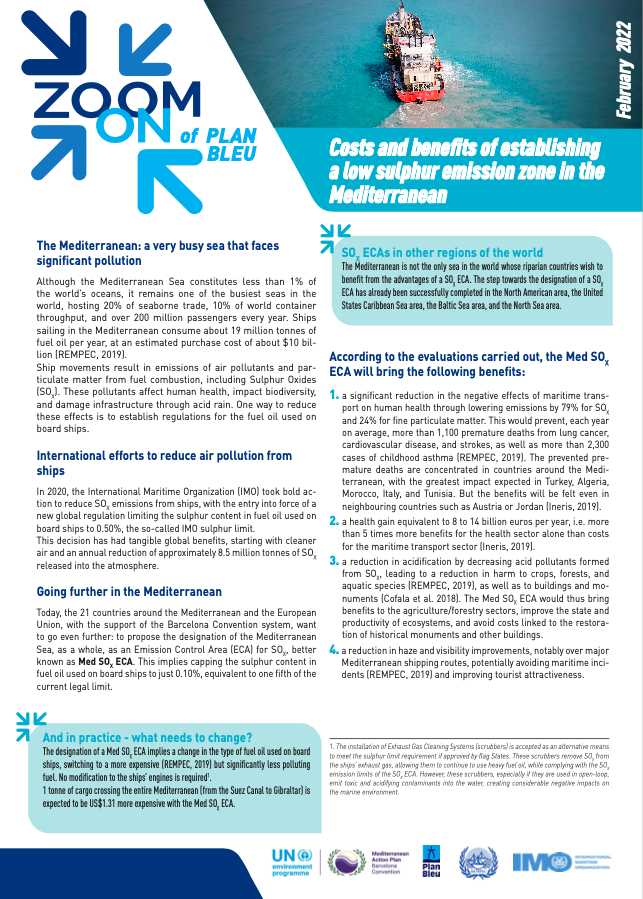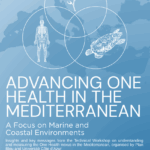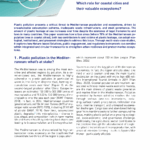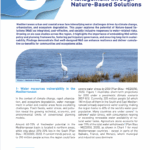In 2020, the International Maritime Organization (IMO) took bold action to reduce SOX emissions from ships, with the entry into force of a new global regulation limiting the sulphur content in fuel oil used on board ships to 0.50%, the so-called IMO sulphur limit.
This decision has had tangible global benefits, starting with cleaner air and an annual reduction of approximately 8.5 million tonnes of SOX released into the atmosphere.
Today, the 21 countries around the Mediterranean and the European Union, with the support of the Barcelona Convention system, want to go even further: to propose the designation of the Mediterranean Sea, as a whole, as an Emission Control Area (ECA) for SOX, better known as Med SOx ECA This implies capping the sulphur content in fuel oil used on board ships to just 0.10%, equivalent to one fifth of the current legal limit.
Click here to download the publication ZOOM ON – Med SOx ECA






